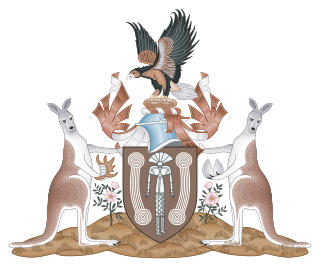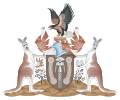
The Department for Infrastructure is a devolved Northern Ireland government department in the Northern Ireland Executive.

The Ministry of National Development is a ministry of the Government of Singapore responsible for the formulation and implementation of policies related to the land-use planning and infrastructure development in Singapore.

The Ministry of Transport, Mobility and Urban Agenda (MITMA), traditionally known as the Ministry of Development (MFOM), is the department of the Government of Spain responsible for preparing and implementing the government policy on land, air and maritime transport infrastructure and the control, planning and regulation of the transport services on this areas. It is also responsible for guaranteeing access to housing; urban, soil and architecture policies; planning and controlling the postal and telegraph services, directing the services related to astronomy, geodesy, geophysics and mapping, and planning and programing the government investments on infrastructure and services related to this scope. The Ministry's headquarters are in the New Ministries government complex.
Gary John Higgins is an Australian former politician. A member of the Country Liberal Party, he was elected to represent the seat of Daly in the Northern Territory Legislative Assembly at the 2012 election. After the 2016 election, the CLP was reduced to only two members in the Legislative Assembly, with Higgins becoming party leader and Leader of the Opposition. Following health problems, he resigned both positions in favour of Lia Finocchiaro in February 2020, and retired at the 2020 election.

The Northern Territory Minister for Police, Fire and Emergency Services is a Minister of the Crown in the Government of the Northern Territory.

The Northern Territory Minister for Aboriginal Affairs is a Minister of the Crown in the Government of the Northern Territory. The minister administers their portfolio through the Department of the Chief Minister.

The Northern Territory Minister for Trade, Business and Innovation is a Minister of the Crown in the Government of the Northern Territory The minister administers their portfolio through the Department of Trade, Business and Innovation.

The Northern Territory Minister for Children is a Minister of the Crown in the Government of the Northern Territory.

The Northern Territory Minister for Health is a Minister of the Crown in the Government of the Northern Territory of Australia. The minister administers their portfolio through the Department of Health.

The Northern Territory Minister for Essential Services is a Minister of the Crown in the Government of the Northern Territory.

The Northern Territory Minister for Public Employment is a Minister of the Crown in the Government of the Northern Territory. The minister administers their portfolio through the Office of the Commissioner for Public Employment.

The Northern Territory Minister for Environment and Natural Resources is a Minister of the Crown in the Government of the Northern Territory. The minister administers their portfolio through the Department of Environment and Natural Resources.

The Northern Territory Minister for Tourism and Culture is a Minister of the Crown in the Government of the Northern Territory, Australia. The minister administers their portfolio through the Department of Tourism and Culture.

The Northern Territory Minister for Corporate Information Services is a Minister of the Crown in the Government of the Northern Territory. The minister administers their portfolio through the Department of Corporate and Information Services.

The Northern Territory Minister for Education is a Minister of the Crown in the Government of the Northern Territory. The minister administers their portfolio through the Department of Education.

The Northern Territory Minister for Territory Families is a Minister of the Crown in the Government of the Northern Territory. The minister administers their portfolio through Territory Families.
The Martin Ministry was the ministry of the seventh Chief Minister of the Northern Territory, Clare Martin. It was sworn in on 27 August 2001 after Martin's victory 2001 election. In addition to Martin as the first ever female Chief Minister, it also included the first ever indigenous minister in Jack Ah Kit. Martin served until November 2007, when she was succeeded by her deputy, Paul Henderson.
Manitoba Transportation and Infrastructure is the provincial government department responsible for managing infrastructure in Manitoba. It is in charge of "the development of transportation policy and legislation, and [of] the management of the province’s vast infrastructure network."
Multi-Modal Logistics Parks (MMLPs) is a key policy initiative of the Government of India, led by National Highways Logistics Management Limited under Ministry of Road Transport and Highways (MoRTH) and the National Highways Authority of India (NHAI), to develop Multi-Modal Logistics Parks in hub-and-spoke model to improve the country's freight logistics sector by lowering overall freight costs and time, cutting warehousing costs, reducing vehicular pollution and congestion, improving the tracking and traceability of consignments through infrastructural, procedural, and information technology interventions.





